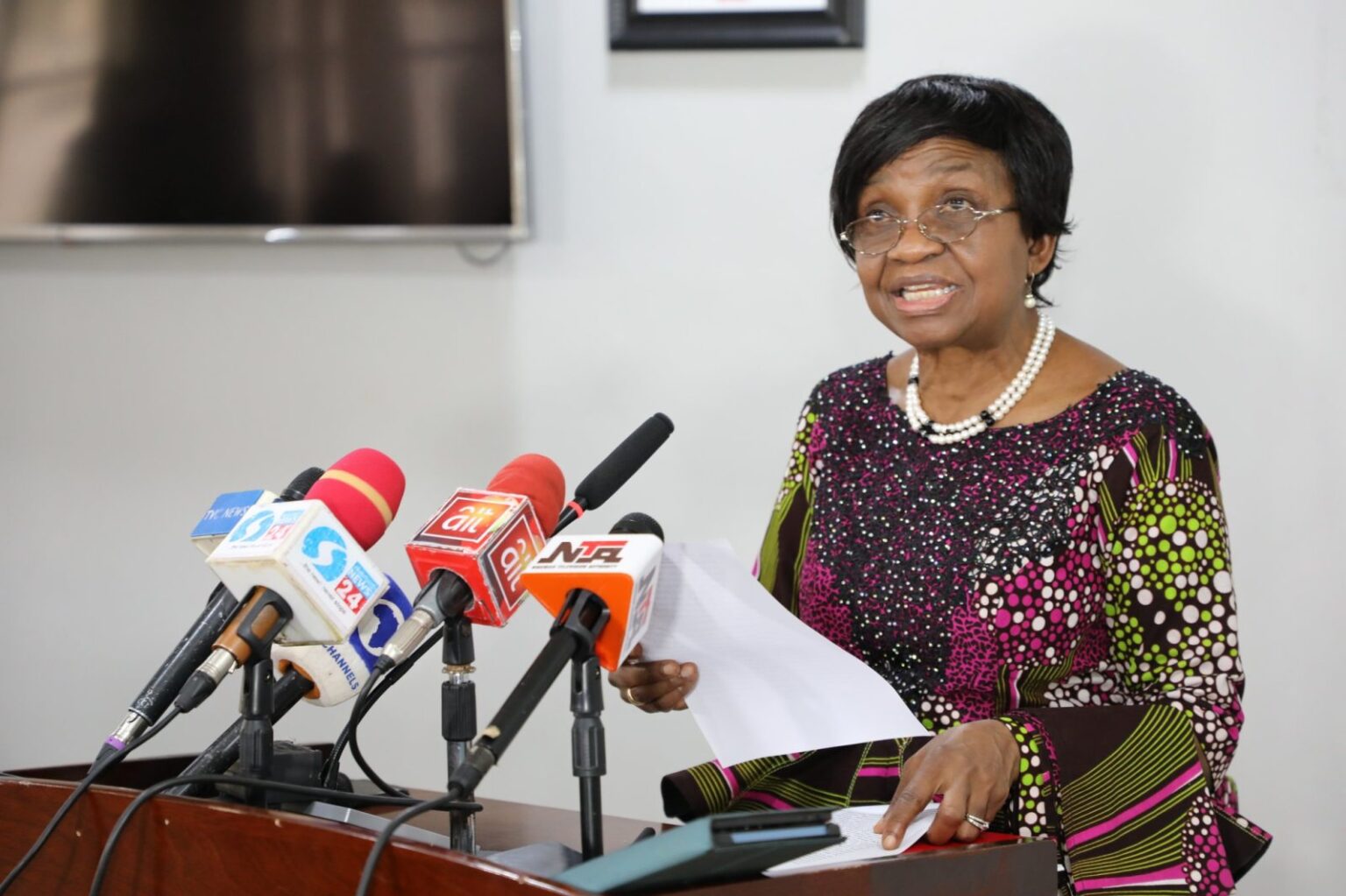
The National Agency for Food and Drug Administration and Control (NAFDAC) has proposed the death penalty for individuals found guilty of trafficking counterfeit and illicit drugs. The agency’s Director-General, Prof. Mojisola Adeyeye, made the alarming recommendation during an appearance on Channels Television’s program, “The Morning Brief,” igniting a discourse on the urgent need for stringent measures to combat the pervasive issue of fake medicines in Nigeria.
Prof. Adeyeye’s remarks come in the wake of increasing concerns regarding the safety of pharmaceuticals, especially when these counterfeits lead to tragic outcomes, such as the deaths of children. “Only stiff penalties will deter peddlers, especially when it leads to the death of children,” she stated.
The context of her discussion was underscored by a recent incident where a highly priced children’s medicine, purchased for N13,000, was found to be a sham when tested at NAFDAC’s Kaduna laboratory. In stark contrast, a counterfeit version was being sold at a significantly lower price of N3,000, raising alarm bells about the dangers posed to innocent consumers.
The Director-General’s plea is fueled by the harrowing realization that the sale of falsified medications not only risks health but can also be deadly. “You don’t need to put a gun to the head of a child before you kill that child. Just give that child bad medicine,” Adeyeye underscored, painting a grim picture of the situation. Her proposal calls for a united front from the judiciary and the National Assembly to enact a legal framework that supports this severe sentencing.
Addressing the systemic challenges within the nation’s legal framework, she argued that weak penalties do little to deter those who continue to engage in this deadly trade. “Somebody brought in 225mg of Tramadol that can kill anybody,” she noted, criticizing the current sentencing structures that allow offenders to escape with minimal punishment. A mere five-year prison sentence or fines do not serve as a sufficient deterrent against a crime that can have lifelong repercussions.
Prof. Adeyeye’s comments reflect a growing frustration with the inadequacies of Nigeria’s judicial and legislative systems in tackling the counterfeit drug crisis, which has been described as a public health emergency. “If you kill a child by bad medicine, you deserve to die,” she asserted, emphasizing the need for laws that reflect the severity of the crime.
In addition to the urgent need for stronger penalties, Prof. Adeyeye lamented the agency’s challenges due to a severe shortage of manpower. NAFDAC reportedly operates with only about 2,000 staff members nationwide, significantly hampering its capacity to execute its mandate effectively. “We are short-staffed and I am hoping things will be better,” she shared, a reminder of the practical hurdles that the agency faces as it fights against a growing tide of counterfeit medications.
The call for the death penalty and enhanced measures is set against a backdrop of heightened efforts by NAFDAC in recent years to combat the scourge of counterfeit drugs. The agency has launched significant crackdowns on fake medications, with notable events including the destruction of counterfeit products worth billions of Naira. From July to December 2024 alone, NAFDAC destroyed unregistered drugs valued at approximately N11 billion in an operation in Ibadan, Oyo State, highlighting their commitment to curbing this public health menace.
Despite these efforts, the persistent issue of counterfeit medicines remains a dire problem, as noted by recent seizures of fake drugs. In November 2024, NAFDAC seized significant quantities of counterfeit medications during a raid at the Trade Fair Complex in Lagos State, further underscoring the extensive reach of the counterfeit drug network in Nigeria.
Prof. Adeyeye’s remarks are likely to engender heated debates among lawmakers, healthcare professionals, and the public at large. Critics may argue that the death penalty is an extreme measure that raises ethical and moral questions, while supporters may contend that such consequences are necessary to protect vulnerable populations, especially children, from the devastating effects of counterfeit drugs.
As the discussion unfolds, it is clear that NAFDAC’s proposal represents a pivotal moment in Nigeria’s fight against counterfeit drugs. The fate of the proposed legislation will ultimately depend on the collaboration between the judiciary, legislative bodies, and public sentiment surrounding this pressing issue. With the stakes so high, the urgency for action has never been clearer: lives hang in the balance, and the call for justice has never been more critical.
In a time when the integrity of healthcare systems is increasingly under threat, Prof. Adeyeye’s statement serves as a stark reminder that the fight against counterfeit drugs requires not just vigilance but also a commitment to ensuring that those who endanger lives are held accountable—potentially at the highest cost.




